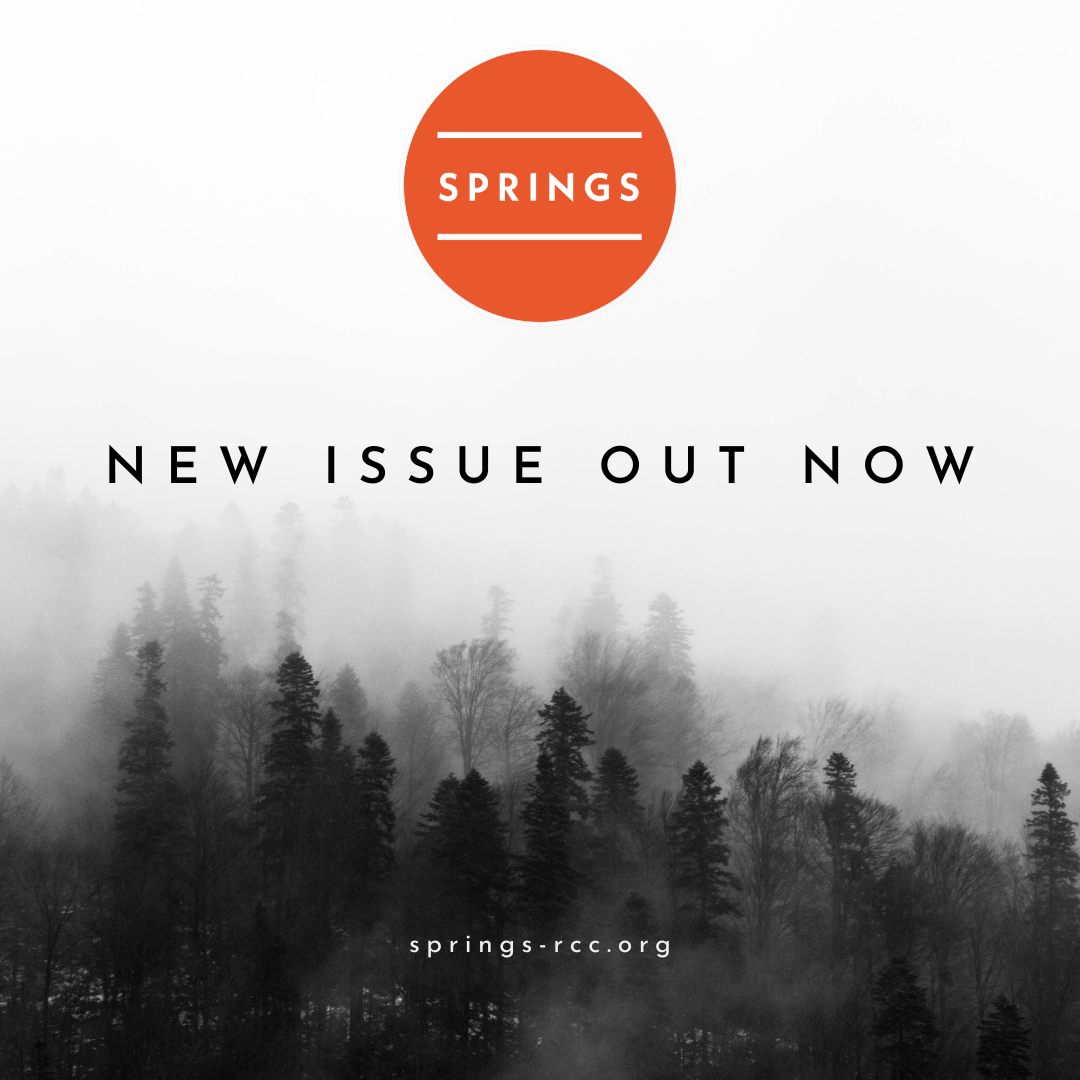Fifth Issue of Springs: The Rachel Carson Center Review
13.06.2024
Springs: The Rachel Carson Center Review is back with its fifth installment. Join us as we journey from the cold depths of a northern German lake to the warm dunes of southern Portugal.
When author and researcher Jessica Lee travels to the German village of Neuglobsow in “The Magic Mirror: Legends, Limnology, and Nuclear Power on Lake Stechlin,” she uncovers a region shaped by the intangible legends of ferocious red roosters, waterspouts, and geysers, as well as by the tangible impact of a nuclear power plant nearby.
How do we talk about fungi in the English language? The illustrated essay by ecologist and photographer Alison Pouliot, “Talking Fungus: Finding Language for a Troubled Kingdom,” contends that a new, re-enchanting vocabulary for the misunderstood kingdom of fungi, giving an organism “agency” through language, is the first step toward a broader recognition of the kingdom.
RCC Director Christof Mauch sits down with Martin Saxer, filmmaker and principal investigator of the ongoing research project “Foraging at the Edge of Capitalism,” to discuss what makes contemporary foraging different from the foraging of hunter-gatherers. “Seeing with a Forager’s Eye: A Conversation with Martin Saxer” investigates both how and why this spatially unconfined practice happens in places as rural as the Siberian Chinese border and as urban as Munich’s own English Garden.
Ever since an open-pit mine became a Liberian nature reserve in the Nimba mountain range, the region has attracted various actors seeking to rethink the value of an area recognized as a hotspot of biodiversity and, potentially, infectious diseases. In “The Value of Fragments: Making a Hotspot in Mount Nimba, Liberia,” anthropologist Emmanuelle Roth and historian Gregg Mitman follow a local park ranger through the reserve, investigating how the region’s complex history has altered relations among its living and nonliving occupants.
Writer and historian Beth LaDow regales us with a story of the quirky relationship between humans and beavers as it unfolds around a small beaver pond in Maine each year. LaDow’s “Beavering” gives us a unique and local glimpse into the everyday life of this species and the carbon-sequestering, water-regulating, and species-diversifying wetlands they create.
Among the shifting slopes of southern Portugal’s human-shaped shoreline, the product of a decades-long beach nourishment project, Joana Gaspar de Freitas’ personal history and professional research collide. As the environmental historian reckons with her self-professed transitory muses, sand dunes, “The Poetics of Dunes” makes the case that these transitory formations possess a unique ability to disrupt human notions of a place as a fixed, permanent location.
Beyond these exciting new articles, Springs continues its efforts to champion writing from other open-access RCC publications. In addition to the curated collection of pieces from RCC Perspectives (2010–20) and the peer-reviewed online journal Arcadia: Explorations in Environmental History, our Springs archive is now proud to include publications from the RCC’s recently revived multi-genre blog, Seeing the Woods.
Downloads
- Springs 5 (90 KByte)


